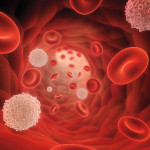In 2018, Christine “Chris” Colpitt, 66, was feeling incredibly tired. The year didn’t start that way, but by May, Colpitt was finding it difficult to summon the strength to get out of her chair.
Unsure of the root of her symptoms, her primary care physician asked her to come in for bloodwork. The results indicated blood cancer, and shortly after she was diagnosed with acute myeloid leukemia (AML), a fast-growing type of leukemia that originates in the bone marrow.
“I was absolutely blindsided by the news,” Colpitt recalls. “Work had been incredibly stressful, and I had always assumed my symptoms were a result of that.”
Two steps forward, one step back
Colpitt immediately began chemotherapy in her home state of Maine. Treatment was taxing, but Colpitt still considered herself lucky. She trusted and loved her care team, and by October 2018, she was in remission. Through the use of an iPad, she was also able to keep in touch with her children and grandchildren.
With the news, Colpitt allowed herself to breathe and thought, “I can and will do this.”
Then, in January of 2020, Colpitt discovered the cancer had relapsed.
A center with expertise
This time, Coplitt would need a stem cell transplant. Since her current hospital did not perform the procedure, Colpitt was referred to Dana-Farber Cancer Institute and Vincent Ho, MD, director of Clinical Operations, Stem Cell Transplantation.
Colpitt was initially apprehensive about traveling to Boston for treatment. However, her fears subsided the moment she walked through the doors and met with her team, whom she affectionally refers to as “earth angels.”
“They were my heroes,” adds Colpitt. “No matter how many people they see in a day, they always make me feel special.”
Adjusting to COVID-19 with help of care team
Colpitt was originally scheduled to undergo an allogeneic stem cell transplant (using stem cells from a donor) with her fully matched brother as the donor. However, as the COVID-19 pandemic worsened, her brother could no longer serve as her donor: He was over age 60 and was at high risk for serious disease.
While the setback was disappointing, her team already had another option in place. The plan was for Colpitt to receive stem cells from a young unrelated, volunteer donor in Great Britain who was also a perfect match. Unfortunately, when she was undergoing chemotherapy in preparation for the procedure, the Europe travel ban took effect.
Again, her team pivoted. Colpitt would undergo a haploidentical or “half-matched” stem cell transplant. This procedure is a modified version of the allogeneic transplant, in which donors only need to be a 50% match to the recipient. With one of her daughters acting as her donor, Colpitt finally received a stem cell transplant in September, and today remains in remission.
“Chris’ story is just one of many examples of the major disruptions thrusted upon our patients and transplant program by the COVID-19 pandemic,” says Ho. “Despite it all, she never became discouraged, and her ever positive outlook was instrumental in getting her through this difficult year. Her successful transplant is a testament to the incredible effort from our transplant team in circumventing all challenges created by the pandemic, and we continue to do so every day for our patients.”
“Chris is a remarkably positive person, and I think that’s played a major role in how well she’s done,” adds Lisa Stewart, NP, Colpitt’s stem cell nurse practitioner. “She’s been able to roll with the punches and is constantly looking forward.”
Now back in Whitefield, Maine, Colpitt is enjoying the comforts of home. She and her husband, Tom, can often be found in the trails behind their home, walking or riding in their ATV. The Colpitts also live next door to their youngest daughter, and Colpitt — or “MoMo,” as she is affectionally referred to by her grandchildren — says having the grandchildren around has been her biggest inspiration.
“My family, especially my grandchildren, are my medicine. They help me put things into perspective and give me the strength to claw my way through,” explains Colpitt. “I’ve had a blessed and wonderful life, and I look forward to every moment I get to spend with the people I love.”
This article was originally published on January 5, 2021, by Dana-Farber Cancer Institute. It is republished with permission.







Comments
Comments